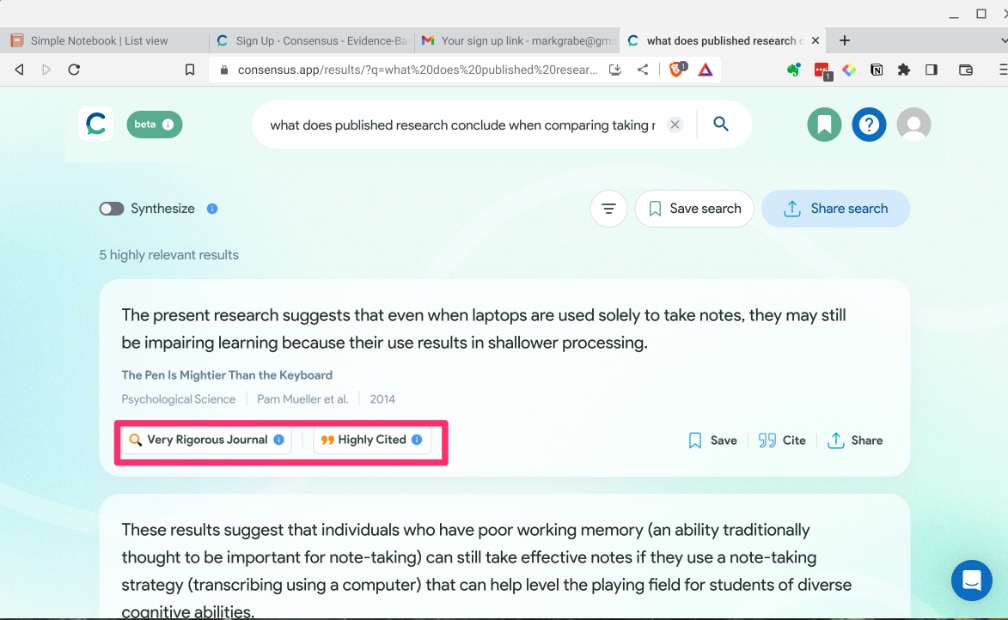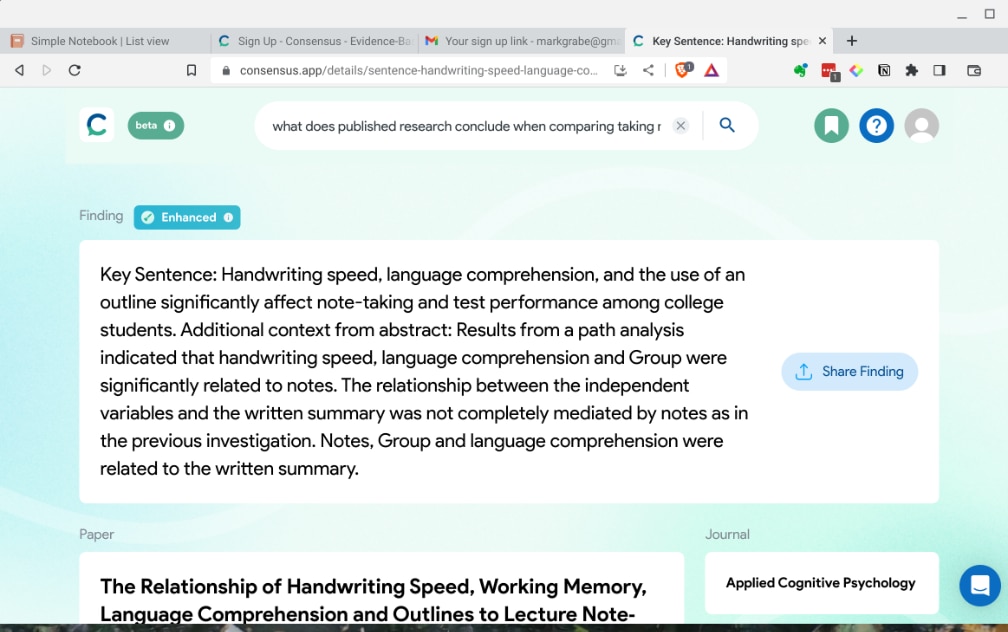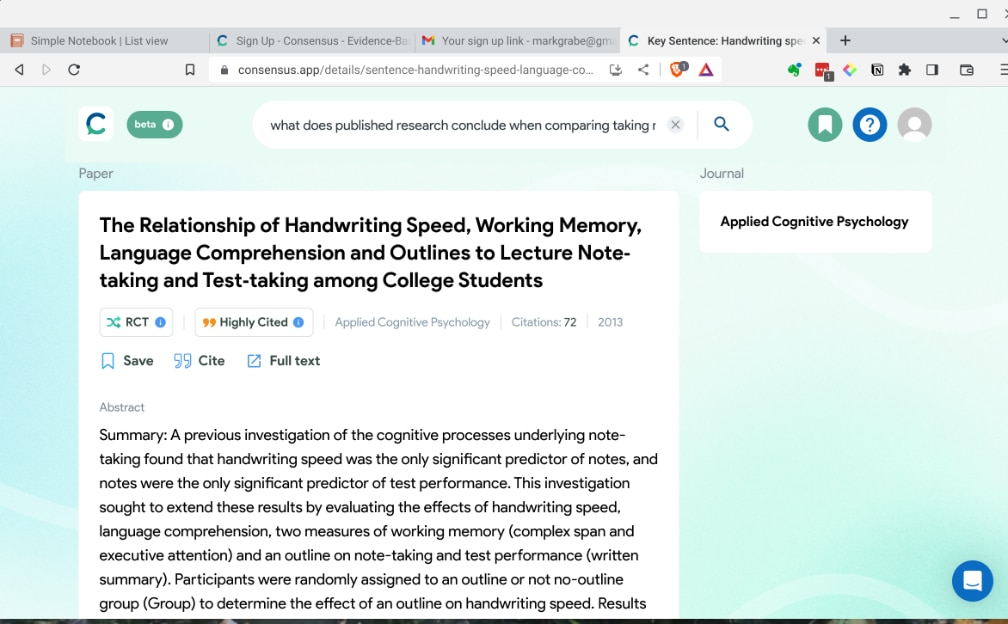Consensus is an AI-powered search tool that identifies and integrates sources on a user-defined goal. Responses to queries are based on an ever-expanding database of studies now mostly from Semantic Scholar. At this time there are approximately 200,000 studies in this collection. In comparison to the training data for ChatGPT, the material used for Consensus is current.
The search process works by identifying claims from published documents. Claims are then matched to the focus of the prompt and the most relevant are returned. Additional associated metadata such as citation count is used to label what Consensus considers the most impactful studies.
Pricing – the free version of Consensus allows the generation of three summaries per month. The $8 per month allows unlimited queries. This is a nice combination allowing adequate room for evaluation and occasional use. For heavy use, $8 per month seems very reasonable.
Here is an example. I have been using this same topic recently because I have thoroughly explored the research and feel qualified to evaluate AI tools applied in this area.
Prompt: What does published research conclude when comparing taking notes by hand and when using a laptop?
The service returned 20 or so studies. I would say at least 10 or so were directly relevant to the prompt. The rest addressed notetaking in different ways but not necessarily relevant to the comparison I requested.
The first images os what you first receive in response to the prompt. For each source, the claim the service identified is displayed as well as some other metadata (see red box).

Selecting one of the hits brings up additional information including a citation, the key sentence (claim), and the abstract from the source.


You cannot read the full articles unless you have a way to access them. I have this access as a university faculty member. Before I cite research I always read the article. The abstract does not allow me to review the Method used in the research. How data are collected is important to understand when making any type of recommendation based on research and this is especially the case when studies come to different conclusions as is the case with comparisons of handwritten and keyboard notes.
Discovery is also an important use of this type of tool. I found one reference for a study from what the system described as a rigorous source that I had not read and a few other sources that might be worth a look.
I am at the point when I need to redirect my time from exploring so many AI tools to using the tools to get work done. This field is moving so fast new approaches and ideas are constantly surfacing, but it is important not to get caught in the trap of following new opportunities that seem a little bit better than what you are now applying. The present exploration did surface a tool I will use.
![]()

You must be logged in to post a comment.